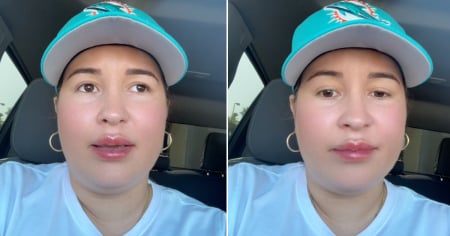A young Cuban woman, who identifies herself on TikTok as @ilianys94, has sparked a wave of reactions after posting a video proudly washing her car. The vehicle may not be the latest model, but it has something many value more: it is completely paid off and has all the proper documentation. In the video, filmed at a car wash in Houston, the phrase “Do you have a transporteichon? Yes, but it’s really mine, with all the papers and everything” became the catchphrase of the moment.
The post was filled with comments from Cubans who related to the content, applauded Ilianys's attitude, and celebrated her financial independence. "In Cuba, we didn't even have bicycles; here, we appreciate them for the sacrifice." wrote a follower. Another, with a sense of humor, said: "I have a 2024 Camry and I owe $35,000 on it... anyone want it?"
Among the reactions, there was a mix: mechanics supporting the choice, users who have their cars paid off, and others who admitted they still owe “even for the tires.” Someone commented, “That one is definitely yours. The others are all from the bank.” Another wrote, “That’s not just any car; it’s a Honda, a good one.” And of course, there were those who offered to wash the car for free.
Far from showing off, the Cuban responded with humility to those who congratulated her. “It’s a joy to be able to take the cash for other things without fear,” she wrote in one of her comments. And the real message was not to showcase a clean car, but to celebrate a goal achieved without owing anything to anyone.
The use of the term "transporteichon," mixing humor with pride, became a fun way to discuss effort and responsibility. Because beyond appearances, owning a car in the United States, without any financing involved, remains a significant achievement for many migrants.
What started as a spontaneous video struck a chord with thousands of people: the desire to live peacefully, free of debts, and enjoying what has been achieved through hard work. Sometimes, all it takes is a bucket of water, a paid-off car, and a good attitude to inspire an entire community.
Frequently asked questions about the experiences of Cubans with cars and car washes in the U.S.
Why has the video of Ilianys washing her car become so popular?
Ilianys's video became popular because it showcases her pride in owning a fully paid-off car with all the proper paperwork, something that many value more than having a new model. Her humble attitude and the connection with other Cubans who share similar experiences of hard work and self-sufficiency have resonated within the community.
How did Cubans react on social media to Ilianys' video?
Cubans on social media applauded Ilianys for her financial independence and congratulated her on her achievement. Many identified with her story, highlighting the importance of reaching goals without debt and appreciating what can be achieved through hard work. The post generated supportive and humorous comments, reflecting the reality of many migrants seeking stability in the U.S.
How do the videos of Cubans at car washes reflect the cultural differences between Cuba and the U.S.?
The videos of Cubans at car washes reflect cultural differences by showcasing genuine and astonished reactions to technologies and services that are common in the U.S. but novel for those coming from Cuba. These videos highlight the contrast between the two countries and capture the adaptation of Cubans to new experiences, fostering empathy and connection within the community.
Filed under:
